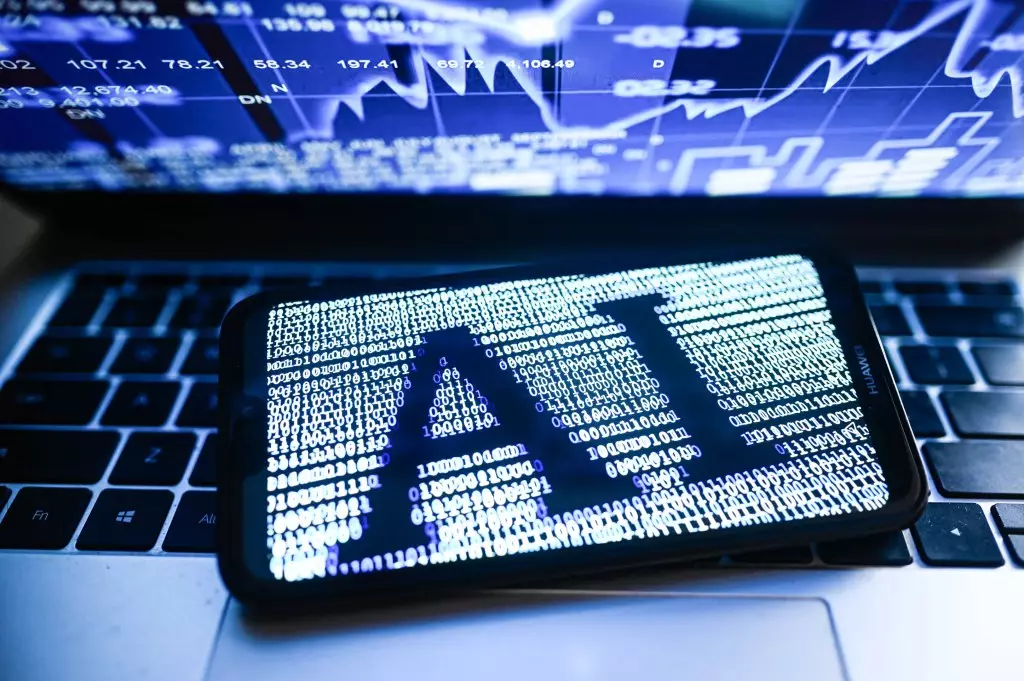At the intersection of creativity and technology lies artificial intelligence (AI), a force that is increasingly reshaping the landscape of various industries, not least of which is the entertainment sector. The Motion Picture Association (MPA), representing titans like Disney and Netflix, recently made headlines with a robust ten-page comment concerning AI and copyright laws. They argue that AI can—and must—find a home within our existing copyright framework. On the surface, this statement strikes a moderate tone, a bid to placate both the creative community and the tech giants clamoring for fewer regulations. However, it raises urgent questions about the fine balance between protecting intellectual property and fostering innovation.
The MPA’s assertion that AI holds “great potential to enhance human creativity” is undoubtedly a positive sentiment but veils a deeper, more concerning reality: the risks associated with unbridled AI. While proponents claim AI can generate creative solutions and economic prosperity, we must interrogate the costs of such advantages. The fundamental issue lies in whether we can truly maintain meaningful copyright protections while simultaneously allowing AI proponents to exploit existing works for training and development with minimal oversight. Will we ultimately sacrifice the rights of individual creators on the altar of technological advancement?
The Threat of Neglecting Copyright Protections
Ironically, as technology has advanced, the protections afforded to creators seem to have stagnated or even regressed. The MPA’s call for a harmonious relationship between AI developments and copyright protections feels more like a plea for leniency, especially given the increasing pressure from influential companies like Google and OpenAI. These powers posit that a relaxed legal landscape favors “national security,” rationalizing their pursuit of an exemption that could ultimately undermine the very fabric of our creative industries.
As a self-proclaimed center-wing liberal, I find this perspective troubling. The idea that exploiting creative works in the name of economic competition can be justified by national security is not just a slippery slope; it’s a full-blown free fall into an abyss of ethical ambiguity. Why should Google or OpenAI, valued at astronomical levels, shield their operations from existing laws that protect individual creators simply because they want to scale their businesses faster than their competitors? If anything, this trend only reveals the corporatization of creativity, reducing art to mere collateral in a grand game of capitalist chess.
A Creatively Fractured Industry
It’s no secret that the MPA is facing backlash from various factions within Hollywood—from writers’ guilds to A-list stars—who are alarmed about the potential erosion of their rights due to unregulated AI usage. An open letter penned by hundreds of industry luminaries emphasizes a deep-seated fear that illicit use of copyrighted material could wreak havoc on the creative landscape. They argue—quite convincingly—that the sanctity of original expression will dwindle into mere pixels if corporations are allowed to exploit creators without negotiating fair terms.
The MPA defends its position by asserting that copyright and innovation can coexist, but this assertion feels like an optimistic ideal rather than a concrete reality. The evidence suggests otherwise. A multitude of ongoing lawsuits reinforces that many artists and creators feel their rights are being trampled for the convenience of tech companies. The MPA’s attempts to navigate these turbulent waters strike me as more of a finger-in-the-dike strategy than a genuine effort to support creators’ rights. The question arises: what is being done to actively protect the very foundation of the entertainment industry—the creatorship itself?
The Economic Argument: Capitalizing on Creativity
While the narrative of AI as a harbinger of economic growth is appealing, we must remain skeptical. The MPA claims that copyright industries contribute over $2 trillion to the U.S. GDP and represent a significant portion of the digital economy, a fact difficult to refute. But such numbers can obscure the human stories behind them—the countless artists, writers, and creators whose livelihoods hang in the balance as corporate behemoths push for more liberties in AI development.
It seems unrealistic to herald AI’s economic potential when the system currently rewards the few at the expense of the many. Yes, audiovidual exports may generate a “positive balance of trade,” but who stands to benefit? If creators continue to be sidelined in favor of technological exploitation, we risk losing not just cultural diversity but the innovation stemming from independent and diverse voices. The economic argument should favor protecting creative rights, not eroding them.
As we journey further into this new age of AI, the conversation surrounding its integration into the creative sectors cannot merely center on economic metrics or technological prowess. We need an urgent reevaluation that prioritizes the rights of creators, ensuring that their works serve as the fertile ground from which innovation can truly arise, free from the predatory instincts of unchecked capitalized interests.

